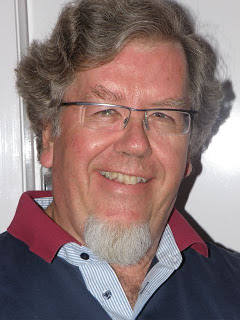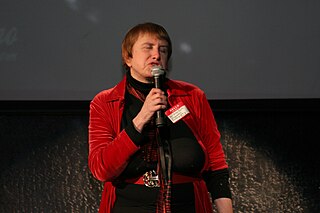| Part of a series on |
| Left communism |
|---|
 |
Unpopular Books is a publisher in London's East End, producing leaflets, pamphlets, and books.
Contents

| Part of a series on |
| Left communism |
|---|
 |
Unpopular Books is a publisher in London's East End, producing leaflets, pamphlets, and books.


Frantz Omar Fanon, also known as Ibrahim Frantz Fanon, was a French West Indian psychiatrist and political philosopher from the French colony of Martinique. His works have become influential in the fields of post-colonial studies, critical theory and Marxism. As well as being an intellectual, Fanon was a political radical, Pan-Africanist, and Marxist humanist concerned with the psychopathology of colonization and the human, social, and cultural consequences of decolonization.

Jean Genet was a French novelist, playwright, poet, essayist, and political activist. In his early life he was a vagabond and petty criminal, but he later became a writer and playwright. His major works include the novels The Thief's Journal and Our Lady of the Flowers and the plays The Balcony, The Maids and The Screens.
Kevin Llewellyn Callan, better known as Stewart Home, is an English artist, filmmaker, writer, pamphleteer, art historian, and activist. He is best known for his novels such as the non-narrative 69 Things to Do with a Dead Princess (2002), his re-imagining of the 1960s in Tainted Love (2005), and earlier parodistic pulp fictions Pure Mania, Red London, No Pity, Cunt, and Defiant Pose that pastiche the work of 1970s British skinhead pulp novel writer Richard Allen and combine it with pornography, political agit-prop, and historical references to punk rock and avant-garde art.

The London Psychogeographical Association (LPA), sometimes referred to as the London Psychogeographical Committee, is an organisation devoted to psychogeography. The LPA is perhaps best understood in the context of psychogeographical praxis.
Neoism is a parodistic -ism. It refers both to a specific subcultural network of artistic performance and media experimentalists, and, more generally, to a practical underground philosophy. It operates with collectively shared pseudonyms and identities, pranks, paradoxes, plagiarism and fakes, and has created multiple contradicting definitions of itself in order to defy categorization and historization
Luther Loide Blissett is a former professional footballer and manager who played for the England national team during the 1980s. Born in Jamaica, Blissett played as a striker, and is best known for his time at Watford, whom he helped win promotion from the Fourth Division to the First Division. As of 2022, Blissett holds Watford's all-time records for appearances and goals, having played 503 games and scored 186 goals.

Luther Blissett is a multiple-use name, an "open pop star" informally adopted and shared by hundreds of artists and activists all over Europe and the Americas since 1994. The pseudonym first appeared in Bologna, Italy, in mid-1994, when a number of cultural activists began using it for staging a series of urban and media pranks and to experiment with new forms of authorship and identity. From Bologna the multiple-use name spread to other European cities, such as Rome and London, as well as countries such as Germany, Spain, and Slovenia. Sporadic appearances of Luther Blissett have been also noted in Canada, the United States, Finland, and Brazil.

The Black Book of Communism: Crimes, Terror, Repression is a 1997 book by Stéphane Courtois, Andrzej Paczkowski, Nicolas Werth, Jean-Louis Margolin, and several other European academics documenting a history of political repression by Communist states, including genocides, extrajudicial executions, deportations, and deaths in labor camps and artificially created famines. The book was originally published in France as Le Livre noir du communisme: Crimes, terreur, répression by Éditions Robert Laffont. In the United States, it was published by Harvard University Press, with a foreword by Martin Malia. The German edition, published by Piper Verlag, includes a chapter written by Joachim Gauck. The introduction was written by Courtois. Historian François Furet was originally slated to write the introduction, but he died before being able to do so.

Michael Eric Dyson is an American academic, author, ordained minister, and radio host. He is a professor in the College of Arts and Science and in the Divinity School at Vanderbilt University. Described by Michael A. Fletcher as "a Princeton Ph.D. and a child of the streets who takes pains never to separate the two", Dyson has authored or edited more than twenty books dealing with subjects such as Malcolm X, Martin Luther King Jr., Marvin Gaye, Barack Obama, Nas's debut album Illmatic, Bill Cosby, Tupac Shakur and Hurricane Katrina.

Anti-art is a loosely used term applied to an array of concepts and attitudes that reject prior definitions of art and question art in general. Somewhat paradoxically, anti-art tends to conduct this questioning and rejection from the vantage point of art. The term is associated with the Dada movement and is generally accepted as attributable to Marcel Duchamp pre-World War I around 1914, when he began to use found objects as art. It was used to describe revolutionary forms of art. The term was used later by the Conceptual artists of the 1960s to describe the work of those who claimed to have retired altogether from the practice of art, from the production of works which could be sold.

Frank Stewart Farrar was an English screenwriter, novelist and prominent figure in the Neopagan religion of Wicca, which he devoted much of his later life to propagating with the aid of his seventh wife, Janet Farrar, and then his friend Gavin Bone as well. A devout communist in early life, he worked as a reporter for such newspapers as the Soviet Weekly and the Daily Worker, and also served in the British army during the Second World War. He was responsible for writing episodes for such television series as Dr. Finlay's Casebook, Armchair Theatre and Crossroads, and for his work in writing radio scripts won a Writer's Guild Award. He also published a string of novels, written in such disparate genres as crime, romance and fantasy.

Felicitas D. Goodman was an American linguist and anthropologist. She was a highly regarded expert in linguistics and anthropology and researched and explored Ecstatic Trance Postures for many years. She studied the phenomenon of "speaking in tongues" in Pentecostal congregations in Mexico. She is the author of such well-received books as Speaking in Tongues and Where the Spirits Ride the Wind: Trance Journeys and Other Ecstatic Experiences. Her work has been published mostly in the United States and Germany.
Christian Dotremont,, was a Belgian painter and poet who was born in Tervuren, Belgium. He was a founding member of the Revolutionary Surrealist Group (1946) and he also founded COBRA together with Danish artist Asger Jorn. In this capacity he was responsible for bringing Henri Lefebvre's Critique de la vie quotidienne (1946) to the group's attention. He later became well known for his painted poems, which he called logograms.

Gilles Dauvé is a French political theorist, school teacher, and translator associated with left communism and the contemporary tendency of communization.

Masks among Eskimo peoples served a variety of functions. Masks were made out of driftwood, animal skins, bones and feathers. They were often painted using bright colors. There are archeological miniature maskettes made of walrus ivory, dating from early Paleo-Eskimo and from early Dorset culture period.

Clayborne Carson is an American academic who is a professor of history at Stanford University and director of the Martin Luther King, Jr., Research and Education Institute. Since 1985, he has directed the Martin Luther King Papers Project, a long-term project to edit and publish the papers of Martin Luther King Jr.

Nevill Drury was an English-born Australian editor and publisher, as well as the author of over 40 books on subjects ranging from shamanism and western magical traditions to art, music, and anthropology. His books have been published in 26 countries and in 19 languages.
The following events related to sociology occurred in the 1980s.

Gini Graham Scott is an American author, songwriter, and game developer. She is also a consultant specializing in business and work relationships, conflict resolution, creativity, social issues, and criminal justice.

Mongolian shamanism, more broadly called the Mongolian folk religion, or occasionally Tengerism, refers to the animistic and shamanic ethnic religion that has been practiced in Mongolia and its surrounding areas at least since the age of recorded history. In the earliest known stages it was intricately tied to all other aspects of social life and to the tribal organization of Mongolian society. Along the way, it has become influenced by and mingled with Buddhism. During the socialist years of the twentieth century it was heavily repressed and has since made a comeback.